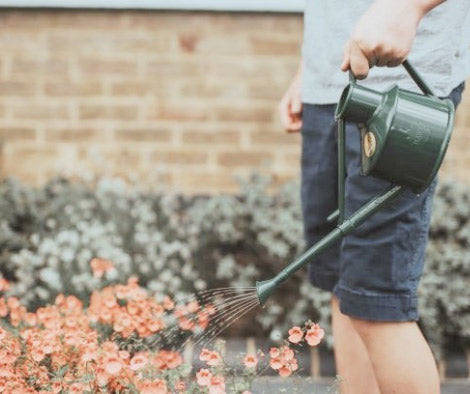
Although a sunny and hot summer is rarely a guarantee here in the UK, the summer this year has definitely started well. That means that our gardens need a little extra TLC.
Here are a few thoughts on how children can easily help us keep our gardens watered during hot spells while having fun and learning something new.
Fun watering ideas
Most children love watering plants because it gives them an opportunity to play with water, however, it can at times be short-lived and turn into a boring chore unless an element of fun is added.
Watering plants can be turned into a game simply by adding a competitive aspect to it e.g. fastest or most accurate waterer; or occasionally using non-standard items for watering such as water guns (aimed at the soil not leaves), milk bottles with lots of holes etc.
Learning more about plants through watering
While we take our gardening and watering knowledge for granted (however large or limited it is), many children don't know much about how/when/where we should water, what plants are drought resistant/tolerant and what makes them drought resistant/tolerant.
Our garden plants are in desperate need of water at the moment so a late afternoon/evening or morning soak is necessary to keep things from dying. This is the perfect opportunity for them to ask questions and for us to share our knowledge or find answers for things that we don't know, all while watering the garden plants together.
Look after your garden residents and visitors
It is not just plants that require water in the summer heat, insects, pollinators, birds and other garden visitors are also desperate to hydrate especially given that many regular sources of water will be dried up.
For smaller organisms like insects, children can create little water stations around the garden. The water has to be very shallow (use a small plate rather than a bowl) and changed regularly.
For larger animals like birds, kids can be in charge of making sure the bird bath is filled up with fresh water and that shallow pots of water are left scattered in the garden for night visitors such as hedgehogs. Birdbaths also give children an opportunity to observe their garden birds while they drink and splash themselves in the fresh water.
Thinking ahead
Hotter summers and more extreme weather conditions are likely to become more common due to climate change. Therefore, it is important to discuss with you mini gardener how together you can make changes that allow you to future-proof your garden. You can design together a drought-tolerant garden, mulch your flowerbeds to retain moisture in the ground, install water butts to catch rain water and use ancient watering systems such as 'ollas'.
Older children can also keep a diary of how much rain their garden has received during the year (using a simple rain gauge) and observe any changes between seasons.
How are you involving your child in keeping garden plants and animals hydrated during this hot summer spell? Feel free to share it with us in the comments section below!




